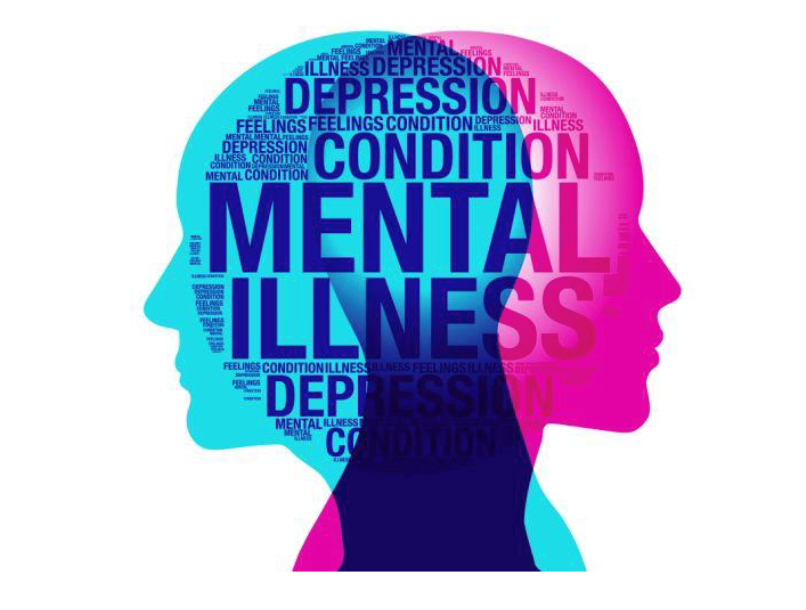Your Guide to Accessing Top Quality Mental Health Services
Your Guide to Accessing Top Quality Mental Health Services
Blog Article
Understanding the Influence of Workout on Mental Health and General Health
In the world of psychological wellness and overall health, the relevance of exercise is a complex subject that requires expedition. Beyond its physical advantages, the impact of workout on one's mental health has actually been a topic of growing passion and research. The complex interplay in between exercise and emotional well-being introduces a range of favorable outcomes that prolong much beyond the boundaries of a health club or a running track. As we navigate via the complexities of this partnership, a deeper understanding of how workout affects our psychological state and total wellness arises, dropping light on the extensive ramifications it holds for our every day lives and long-term wellness.
Benefits of Exercise on Mental Wellness

Routine physical exercise has actually been revealed to dramatically enhance mental wellness end results in people of any ages. Engaging in routine workout not just advantages physical health but likewise plays a critical duty in enhancing psychological health. One of the key advantages of exercise is its capability to lower symptoms of stress and anxiety and depression. Exercise promotes the release of endorphins, additionally recognized as the "feel-good" hormones, which can help ease sensations of stress and anxiety and enhance mood.
Moreover, workout has been connected to boosted cognitive feature and overall brain health and wellness. Furthermore, exercise promotes much better rest patterns, which are essential for maintaining good mental health.

Connection Between Exercise and Tension
Exercise works as a potent system for alleviating tension and promoting psychological well-being by facilitating the release of endorphins and promoting a feeling of leisure and rejuvenation. When stress and anxiety degrees rise, the body's fight-or-flight action is set off, leading to boosted cortisol levels. Routine exercise aids combat this feedback by lowering cortisol degrees, which subsequently minimizes stress and anxiety. Moreover, exercise advertises the production of endorphins, commonly referred to as the body's natural painkillers, which work as mood elevators and stress reducers - Mental Health Services.
Involving in exercise likewise supplies a diversion from day-to-day stress factors, permitting individuals to concentrate on the existing minute as opposed to ruminating on sources of anxiety. Furthermore, exercise can improve self-confidence and self-confidence, supplying a feeling of accomplishment and control that can fight feelings of vulnerability commonly connected with tension. By integrating exercise into a regular regimen, people can efficiently handle stress levels, resulting in improved mental wellness and general high quality of life.
Influence of Workout on State Of Mind
Participating in exercise has been shown to significantly affect one's mood have a peek here and psychological health. The partnership between exercise and mood is well-documented, with various researches highlighting the positive impacts of exercise on mental health. When we take part in exercise, our bodies launch endorphins, commonly recognized as "feel-good" hormones, which can aid relieve sensations of clinical depression, stress and anxiety, and tension. Furthermore, normal exercise can cause enhanced self-worth and a feeling of success, which can further boost one's general state of mind.
Additionally, the influence of exercise on mood expands past advice just the immediate post-workout duration. Research recommends that individuals who preserve a constant workout routine are most likely to experience long-lasting enhancements in their mood and psychological state. This can be credited to the structural adjustments in the brain that occur as a result of normal physical task, such as increased connection in between brain areas in charge of regulating feelings.
Workout and Cognitive Function
Many research studies have actually shown the substantial impact of physical activity on cognitive feature, highlighting the complex relationship between exercise and mental procedures. Involving in normal exercise has actually been shown to enhance numerous facets of cognitive function, including memory, interest span, analytic skills, and general psychological acuity.
Additionally, consistent physical activity has been linked to a reduced risk of cognitive decline and neurodegenerative conditions such as Alzheimer's. Research studies suggest that people that maintain an active way of life throughout their lives experience slower prices of cognitive decrease contrasted to those that are inactive. Overall, the proof overwhelmingly sustains the notion that routine exercise is not just useful for physical health yet additionally plays a vital role in protecting and improving cognitive feature.
Methods for Integrating Exercise
Adopting a structured technique to integrating physical activity right into daily routines can substantially improve the possibility of keeping a constant exercise program. In addition, including exercise into existing routines, such as walking or biking to function, taking the stairways rather of the elevator, or organizing regular workout sessions, can pop over to these guys assist make physical task a habitual component of day-to-day life.
Another helpful tactic is to locate tasks that are pleasurable. Whether it's dance, swimming, cycling, or yoga, taking part in tasks that bring pleasure increases the possibilities of sticking to the workout routine over time. Moreover, differing the sorts of exercises and alloting time for both aerobic and strength-training tasks can prevent boredom and give a holistic approach to fitness.
Incorporating exercise right into social tasks, such as signing up with a sporting activities team or exercise group, can likewise cultivate a sense of area support and responsibility, making it much easier to remain dedicated to normal exercise. By applying these approaches, individuals can produce a lasting and meeting exercise regimen that advertises mental wellness and overall health.
Conclusion
In conclusion, exercise has various advantages for psychological health and wellness and general health. By understanding the influence of exercise on mental wellness, individuals can take positive steps to prioritize their physical task and gain the favorable effects on their mental and emotional state.

Report this page